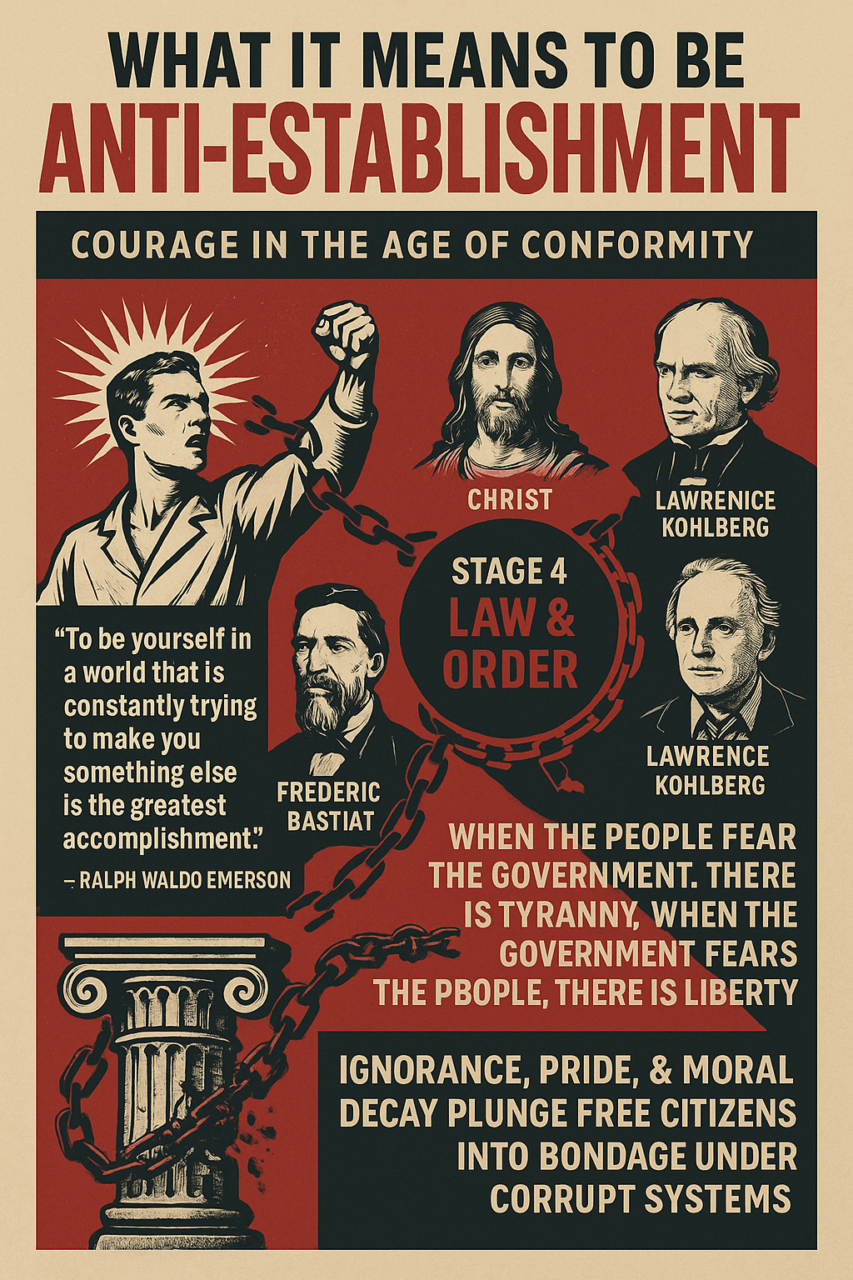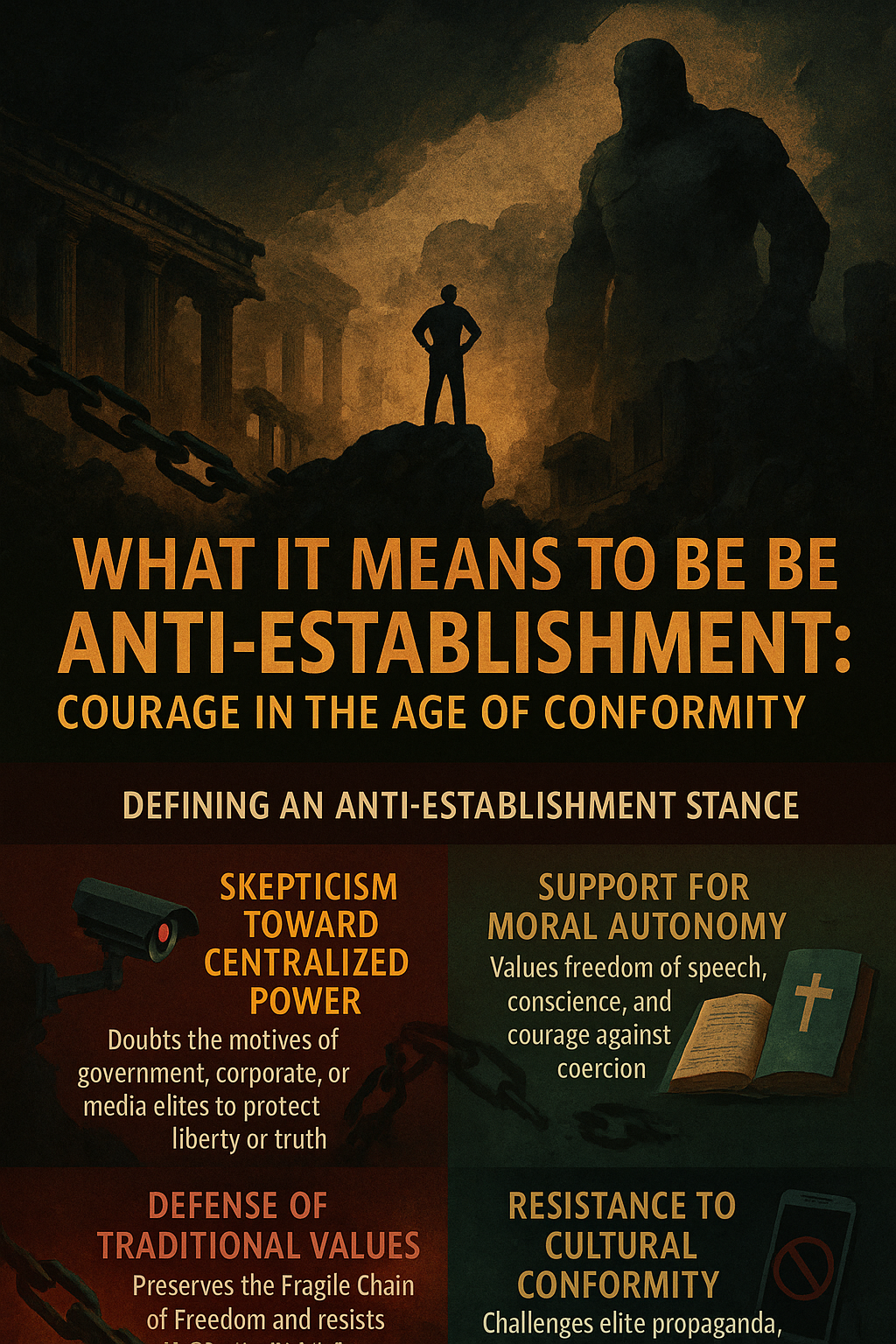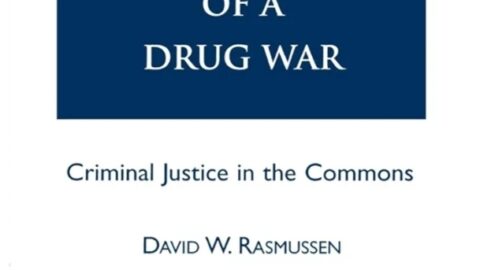I. Introduction: Defining the Anti-Establishment Stance
An anti-establishment stance is more than just a political label—it’s a worldview, a reaction, and a resistance to centralized authority, entrenched power structures, and ideological conformity. Whether in politics, religion, media, or corporate culture, anti-establishment thinkers challenge “the system”—believing that it has become corrupt, compromised, or disconnected from the people it claims to serve.
It’s not about chaos or anarchy—it’s often about returning to core principles that have been buried under bureaucracy, careerism, and groupthink.
II. What Is “The Establishment”?
The “establishment” refers to:
- Power-holding institutions (government agencies, legacy media, elite universities, corporate monopolies).
- Political parties’ leadership and apparatuses, especially when seen as out-of-touch or self-preserving.
- The cultural elite, including those who set the tone of moral, social, or ideological acceptability.
The establishment maintains the status quo, and tends to suppress meaningful reform that threatens its grip on power.
III. Key Features of an Anti-Establishment Stance
1. Skepticism Toward Centralized Power
- Believes that government, corporate, or media elites often act in their own interests.
- Opposes mandates, backroom deals, or “managed democracy.”
2. Support for Local Control and Bottom-Up Governance
- Champions decentralization—local voices, community-based solutions, and constitutional frameworks.
- Prefers people-powered movements over top-down legislation or corporate lobbying.
3. Hostility to Political Correctness and Ideological Uniformity
- Sees cancel culture, media groupthink, and elite narratives as tools of control.
- Values freedom of speech and conscience, even if they offend establishment norms.
4. Defense of Traditional Values Against Cultural Conformity
- Often aligned with religious liberty, family sovereignty, and moral clarity.
- Rejects the shifting sands of cultural relativism pushed by universities or media.

IV. Historical and Modern Examples
Historical:
- The American Revolution was an anti-establishment movement against the British Crown and imperial control.
- Martin Luther’s Reformation challenged the corruption of the Catholic hierarchy.
- The Founding Fathers were radical in breaking from European power models and founding a republic.
Modern:
- Ron Paul: Libertarian advocate for decentralization and constitutionalism.
- D
- Phil Lyman (Utah): Challenges elite political processes, defends grassroots caucus systems.
- Tulsi Gabbard (Democrat turned Independent): Critiques military-industrial complex and media hypocrisy.
V. How the Establishment Reacts
Labeling and Marginalization
- “Conspiracy theorist”
- “Extremist”
- “Populist” (used pejoratively)
- “Dangerous” or “Unstable”
This creates a barrier between the public and truth-tellers, encouraging compliance over curiosity.
VI. The Cost and Courage of Being Anti-Establishment
Individual
- Often mocked, isolated, or misunderstood.
- Must think critically and face constant pressure to conform.
Family
- Tensions may arise if loved ones believe mainstream narratives.
- Passing on anti-establishment values requires intentional education and moral conviction.
Generations
- Anti-establishment thinkers often preserve forgotten truths—only to be honored decades later (e.g., Solzhenitsyn, Orwell, Bonhoeffer).
- Young people raised in truth-aware homes may become the watchmen of their generation.
Society
- Anti-establishment voices keep corrupt systems in check.
- They provoke reform, demand accountability, and preserve liberty when others surrender it.
Nation
- Founding principles—like the U.S. Constitution—were born from anti-establishment courage.
- Once the establishment becomes tyrannical, only anti-establishment patriots can restore the republic.
VII. Misconceptions: What Anti-Establishment Is NOT
- Not anarchy: True anti-establishment thinkers want lawful order—just just, transparent, constitutional order.
- Not nihilism: They believe in purpose, values, and truth—just not those dictated by unaccountable elites.
- Not always partisan: Many anti-establishment voices span the political spectrum.
VIII. Conclusion: A Necessary Force for Preservation
“The further a society drifts from the truth, the more it will hate those who speak it.” – George Orwell
The anti-establishment stance is not dangerous—it’s essential. In every era of moral decay, bureaucratic corruption, or ideological coercion, anti-establishment voices have been the conscience of the people.
They are often mocked in the moment, only to be proven right when the cost of conformity becomes undeniable.






